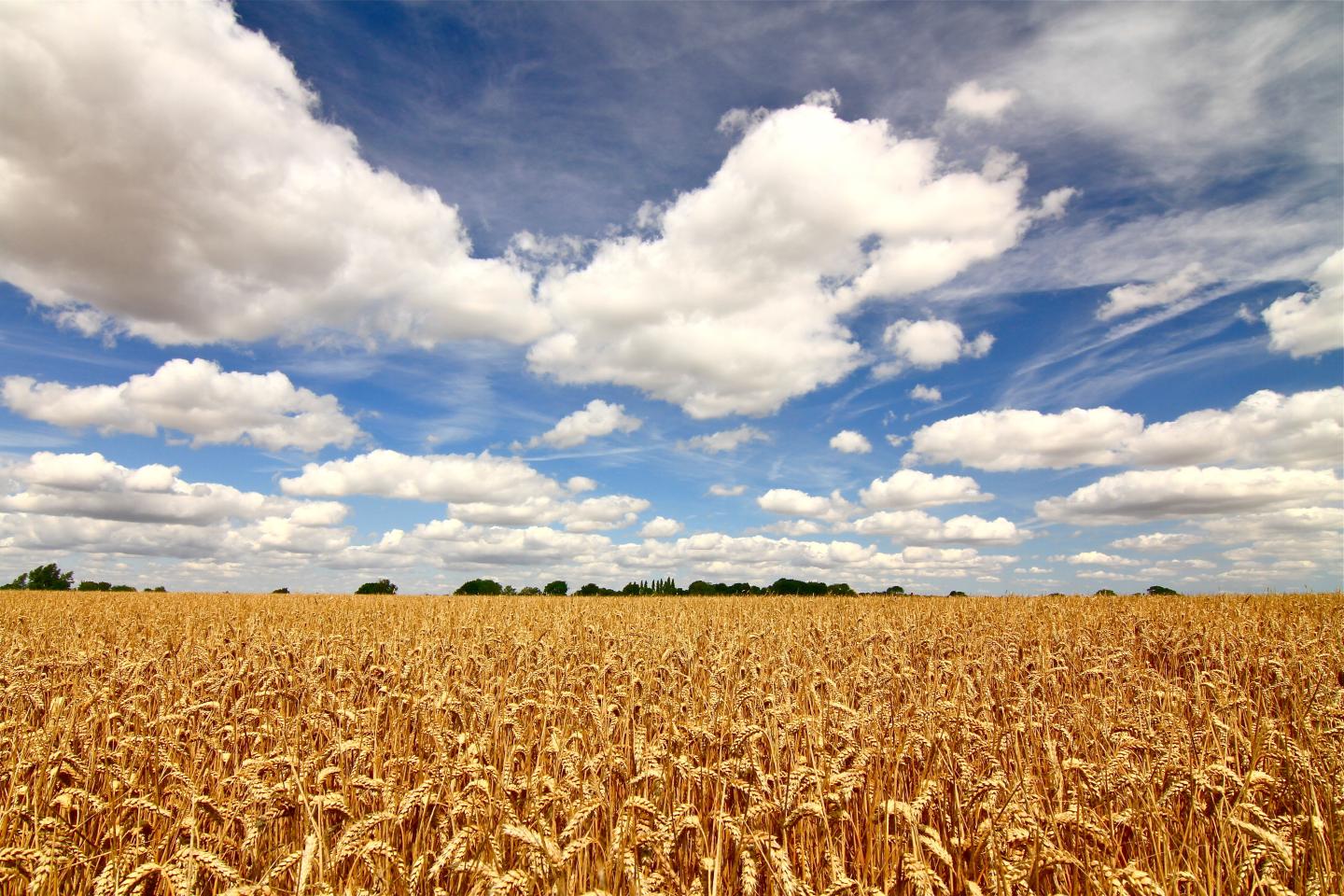
Thank you for continuing to subscribe to our monthly newsletter. We hope you continue to find the content useful and we welcome any feedback or suggestions on topics that you would like to see covered in future editions of the newsletter.
FAS technical advice line: 03000 200 301
- Key dates to be aware of…
- SFI 2023 – Annual Declarations update
- An Update on Capital Grants
- An Update on Countryside Stewardship Higher Tier
- New Technical Article - RPA Advice & Guidance and Site Visits
- Trees on farm: Helping young trees survive hot, dry weather
- National Framework for Water Resources Launched
- Water Abstraction Restrictions and Dry Weather Support from the Environment Agency
- Animal Plant Health Agency.
- NVZ and nutrient management
- Public rights of way
- How a Cheshire dairy farm worked with the Environment Agency to reduce the risks of water pollution
- Updates from the Defra Farming blog and industry announcements
- Stay up to date with us
- How can we help you?
As of 3 July 2025, Capital Grant applications were opened for new applications.
UPDATE 1 AUGUST - Capital Grants offer now closed for new applications
A post on the Defra Blog on Friday 1 August confirmed they have have fully allocated all available funding for the 2025 round of Capital Grants and no new applications submissions could be accepted.
The closed period for high Readily Available Nitrogen (RAN) organic manures on tillage land with sandy or shallow soils in Nitrate Vulnerable Zones begins.
- The full guidance on NVZ closed periods can be found here.
A reminder that the hedgerow cutting and trimming rules are in place until 31 August.
- There are exemptions available when sowing oilseed rape or temporary grass in August.
- The full guidance for hedgerows is available here
For more details about the information provided in the key dates table, visit the Rules for Farmers and Land Managers and the relevant pages of GOV.UK.
SFI 2023 – Annual Declarations update
As the year progresses, Defra are reminding Sustainable Farming Incentive (SFI) agreement holders to submit their annual declaration.
What is the Annual Declaration?
The annual declaration is how SFI agreement holders confirm that they have delivered against their agreement for that year. It is an important part of receiving the final payment for the agreement year. Section 5.2.4 of the Sustainable Farming Incentive (SFI) Handbook for the SFI 2023 offer (publishing.service.gov.uk) covers information on the Annual Declaration.
Submission Timeline and steps
Each SFI agreement spans three years, with agreement holders required to submit an annual declaration during the last two months of each relevant agreement year.
The timing for the declaration depends on the start date of your SFI agreement, and RPA will notify agreement holders when the submission period opens. If unable to invite you to complete your declaration at the expected date, Defra will let you know by email or letter.
You’ll make your annual declaration online using the Rural Payments service, making it accessible and straightforward.
Before submitting an annual declaration, you should download a copy of the current year’s agreement and review the actions it includes.
Here is a summary of the steps for submission:
1. Notification: RPA will inform you when the annual declaration period begins.
2. Access the Declaration Form:
- Sign in to the Rural Payment service.
- Click on the 'Business overview' section.
- Select 'SFI applications and agreements'.
3. Complete the Declaration:
- Click on the 'Annual Declaration' button.
- On the screen asking, 'Are you in a position to submit your annual declaration?', select 'Yes'.
- Review and submit your declaration.
Importance of Timely Submission
It is important to submit your annual declaration within the designated period to receive the final quarterly instalment of your annual payment. The annual declaration process is to be conducted online via the Rural Payments service, making it accessible and straightforward for all agreement holders.
Key dates for annual SFI declaration submission
To assist Sustainable Farming Incentive (SFI) agreement holders, the Rural Payments Agency (RPA) have outlined the opening and closing dates for the SFI annual declaration submission based on the start date of the agreement:
| SFI 2023 - First year annual declaration | ||
|---|---|---|
| Agreement start date | Declaration period opens | Declaration period closes |
| 1 August 2024 | 1 June 2025 | 31 July 2025 |
| 1 September 2024 | 1 July 2025 | 31 August 2025 |
| 1 October 2024 | 1 August 2025 | 30 September 2025 |
| 1 November 2024 | 1 September 2025 | 31 October 2025 |
| 1 December 2024 | 1 October 2025 | 30 November 2025 |
| SFI 2023 - Second year annual declaration | ||
|---|---|---|
| Agreement start date | Declaration period opens | Declaration period closes |
| 1 October 2023 | 1 August 2025 | 30 September 2025 |
| 1 November 2023 | 1 September 2025 | 31 October 2025 |
| 1 December 2023 | 1 October 2025 | 30 November 2025 |
| 1 January 2024 | 1 November 2025 | 31 December 2025 |
| 1 February 2024 | 1 December 2025 | 31 January 2026 |
| 1 March 2024 | 1 January 2026 | 28 February 2026 |
| 1 April 2024 | 1 February 2026 | 31 March 2026 |
| 1 May 2024 | 1 March 2026 | 30 April 2026 |
| 1 June 2024 | 1 April 2026 | 31 May 2026 |
| 1 July 2024 | 1 May 2026 | 30 June 2026 |
| 1 August 2024 | 1 June 2026 | 31 July 2026 |
| 1 September 2024 | 1 July 2026 | 31 August 2026 |
| 1 October 2024 | 1 August 2026 | 30 September 2026 |
| 1 November 2024 | 1 September 2026 | 31 October 2026 |
| 1 December 2024 | 1 October 2026 | 30 November 2026 |
All SFI 23 agreement holders are encouraged to mark the relevant dates in their calendar and complete their declaration promptly to avoid any disruptions in payment.
A gentle reminder that your SFI 23 Rotational Annual Declaration should be completed after your Annual Declaration. If your SFI agreement includes rotational SFI actions, you will have told us about their location and area for the first year of your agreement in your application.
You need to complete a ‘rotational actions declaration’ to tell us about the location and area of your rotational SFI actions for the second and third years of your SFI agreement. This is necessary even if you’re not making any changes to the location or area of these actions.
For any assistance or questions regarding the annual declaration process, please contact the Rural Payments service.
UPDATE 1 AUGUST - Capital Grants offer now closed for new applications
A post on the Defra Blog on Friday 1 August confirmed they have have fully allocated all available funding for the 2025 round of Capital Grants and no new applications submissions could be accepted.
The post advised that applications and supporting evidence submitted before 1:30pm on 1 August would still be processed and the Rural Payments Agency (RPA) will contact applicants directly with the outcome; while eligible applications are considered, funding cannot be guaranteed.
They are unable to process any applications which were started but not submitted at this time. Further details can be found on the Defra blog here.

You can read more about Capital Grants on the Defra Farming Blog.

From September 2025, applications will open for the Countryside Stewardship Higher Tier (CSHT) scheme for those who have been invited to apply and already completed the pre-application process and any preparatory work.
This forms part of the government’s £11.8 billion investment in sustainable farming and food production during this parliamentary term. Within this, funding for nature-friendly farming, including Environmental Land Management schemes such as CSHT, will rise to £2 billion by the 2028/29 financial year.
The new CSHT scheme includes several improvements aimed at making the process more accessible and supportive for farmers and land managers. These include a rolling application window, monthly agreement start-dates, quarterly payments to assist with cashflow, and a simplified online application process through the Rural Payments service.
Throughout this year, the Rural Payments Agency has been inviting farmers to complete the pre-application stage in preparation for applying to the scheme. From September, invitations will begin to go out to those who have completed their pre-application advice to submit their full application. If you have been invited to complete pre-application advice but have not yet responded, it is encouraged you do so as soon as possible so that Natural England or the Forestry Commission can support you through the next steps.
To find out more, read the Defra Farming Blog Post.

RPA Advice & Guidance and Site Visits
In conjunction with the Rural Payment Agency (RPA), FAS has produced a guide on what to expect from RPA Advice & Guidance and Site Visits
National Framework for Water Resources Launched
The Environment Agency’s National Framework for Water Resources details how a sustainable water environment can thrive while supporting a growing economy.

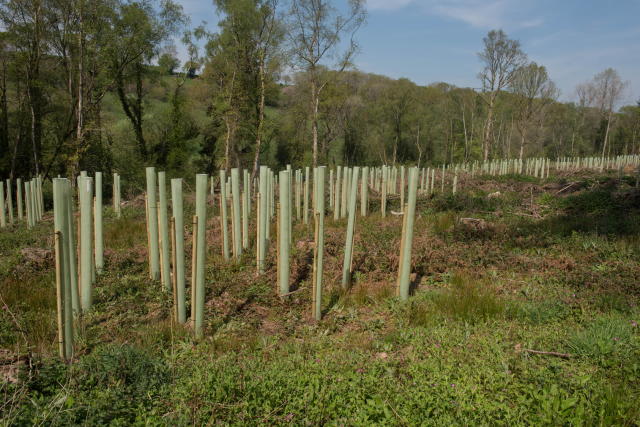
The summer so far has seen prolonged spells of hot dry weather, which puts young trees under significant stress. As climate extremes become more frequent, it’s vital for farmers to take proactive steps to protect young trees.
Young trees are especially vulnerable during their first 12–36 months, as they establish roots and adapt to new conditions. Forward planning for drought resilience is the most effective approach, though some reactive measures can be implemented where appropriate.
Chris Watson, Forestry Commission Woodland Resilience Advisor, shares what you can do to help them survive.
Key signs of stress include wilting leaves or needles, and discolouration. While trees initially respond by deepening roots and reducing water loss, extended drought can cause irreversible damage, including shoot and root death.
Immediate actions to support young trees:
- Watering: Standard trees may need up to 20 litres every other day but should only be done where watering can be maintained consistently.
- Weeding: Remove competing vegetation to reduce water stress.
- Soil care: Firm cracked soil around roots to maintain contact between the roots and the soil and reduce evaporation.
With proactive care and planning, farmers can help young trees thrive despite challenging weather conditions.
To read Chris' full blog, click here.
Preparing for next year:
- Survey losses: Towards the end of summer, whilst leaves are still on the trees, it is important to get an accurate assessment of losses (it can be difficult to establish the extent of mortality once trees move into winter and leaves begin to fall). The sooner an assessment can be made, the sooner trees can be ordered as replacements.
- Autumn planting: Try to begin new planting, restocking or beat-up (the replacement of dead trees) as early as possible – this can be as early as the start of autumn, although this may require the use of cell-grown trees, rather than bare-rooted stock.
- Tree selection: Use tools like Forest Research’s Ecological Site Classification to choose climate-suitable species.
- Mulching and watering aids: Retain moisture and direct water to roots.

With Spring 2025 being the driest in over 130 years, the Environment Agency is working closely with farmers to manage the impacts of prolonged dry weather.
Their latest blog outlines current water conditions, support available for irrigators, and both short- and long-term options to help build resilience. If you rely on irrigation or are concerned about your water supply this season, this update is essential reading.
Following the driest spring in 132 years, the Environment Agency has declared Drought status in Yorkshire, Cumbria and & Lancashire, and Greater Manchester, Merseyside and & Cheshire, East Midlands, and West Midlands areas by early late July. West Midlands, Northe East, Lincolnshire and Northamptonshire, East Anglia, Thames, Wessex, and Solent and South Downs and the East Midlands are in Prolonged Dry Weather status. These areas have activated their drought plans. Although we have recently seen some rainfall across the country, it has not been significant enough to reverse the impacts of prolonged dry weather. To find out more about the stages of drought and prolonged dry weather, there is information available on the Drought Explained page on the .Gov.uk website.
In order to protect the environment and improve access to water when it is available during the periods of low flows, the Environment Agency has issued over 2,600 ‘Hands off’ e-Alerts and around 1,600 warning and resume notices, so far this year, using the Water Abstraction e-Alert (WAA) feature on the Managing Water Abstraction Service (MWAS) on GOV.UK.
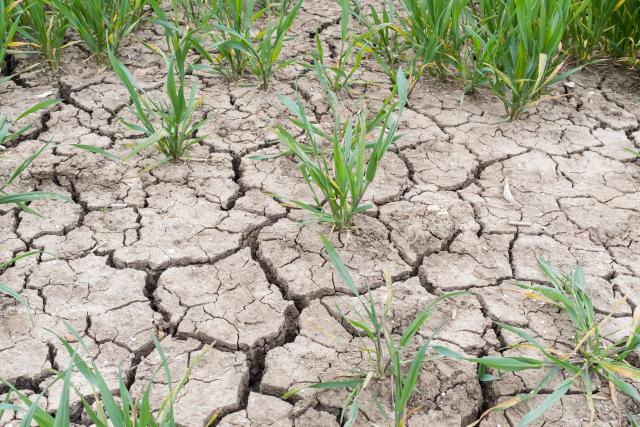
To register your abstraction licence, please go to register for MWAS. If you have any questions or require assistance, please contact Water_abstractiondigital@environment-agency.gov.uk.
The Animal Plant Health Agency (also known as APHA), are an executive agency of Defra and they work to safeguard animal and plant health for the benefit of people, the environment and the economy.
APHA are responsible for identifying and controlling diseases in animals, plants and bees, including scientific research and protecting endangered wildlife through licensing and registration
Common queries related to APHA which the Farming Advice Service receive include questions about the licensing of birds and registration of farm animals.
You can contact the following specific APHA departments directly by email using contact details listed on the Contact APHA - GOV.UK webpages:
- Pet travel and quarantine
- Animals and animal products
- Reporting disease, welfare issues or invasive non-native species
- Imports and Exports
- Plants and seeds
To speak to the APHA team by phone, you can call the Main Rural Services helpline on 03000 200301, selecting option 3 for all other enquiries, then option 2 for Animal Plant Health Agency.
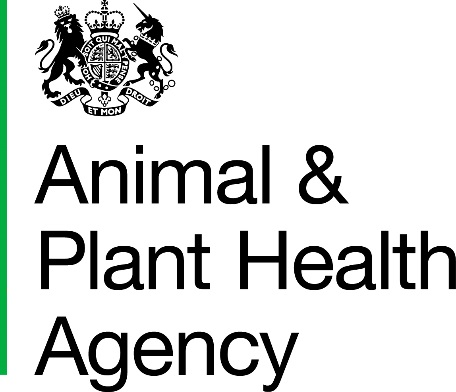

Nitrate Vulnerable Zones (NVZs) are areas designated as being at risk from agricultural nitrate pollution. They include about 55% of land in England.
The Secretary of State is required to review NVZ designations in England and following the most recent review, the NVZs for 2025-2028 have now been designated. If you have land in an NVZ, you will now have received a written notice. This article provides guidance on FAQs and contact details for further queries.
FAQs:
- How can I check what parts of my land are in an NVZ? –
- Please check the interactive map to find out if your land is in a Nitrate Vulnerable Zone (NVZ). Your farm may be completely or partly in an NVZ. NVZ boundaries are drawn around whole fields, so there are no fields that are only partly in an NVZ.
- Please check the interactive map to find out if your land is in a Nitrate Vulnerable Zone (NVZ). Your farm may be completely or partly in an NVZ. NVZ boundaries are drawn around whole fields, so there are no fields that are only partly in an NVZ.
- My land is in an NVZ, what additional rules do I need to follow?
- If your land is in an NVZ, you must follow the legal requirements that apply to NVZs, as specified on the following pages of GOV.UK:
- All farmers and land managers, regardless of whether there land is in an NVZ, must also follow the Farming Rules for Water.
- Are there templates or examples of what records I need to keep?
- There are tools and templates to help you do the calculations and fertiliser planning required to meet the NVZ rules.
- Free farm software such PLANET and MANNER-NPK
- ‘Tried and Tested’ nutrient management tools
- There are tools and templates to help you do the calculations and fertiliser planning required to meet the NVZ rules.
Contact the Environment Agency’s National Customer Contact Centre on 0300 020 3791 (Monday to Friday, 9am to 5pm) for queries related to:
- offline paper copies of NVZ maps and supporting information
- whether you own or occupy a relevant holding and should have received this notice
- difficulty accessing the maps on the website
- other questions regarding designations
To make changes to your business details, such as personal contact details or the land you farm, use the online Rural Payments service, or contact the Rural Payments Agency by email ruralpayments@defra.gov.uk or by telephone 03000 200 301
Using this link, you can read more about the NVZ designations for 2025 to 2028. This guidance explains how to check if you land is in an NVZ and how to appeal.
As a farmer or land manager, summer brings more walkers, cyclists, and riders out to enjoy the countryside. It’s the perfect time to ensure you’re up to date with your responsibilities concerning public rights of way.
Ensuring these routes remain accessible and safe fulfils legal responsibilities and promotes good relations with both the public and local authorities.
To find out more about rights of way on your land, contact your local authority (national park authorities, county councils, some district councils, metropolitan boroughs or unitary authorities) who is typically responsible for maintaining a ‘definitive map’ for your area.

Read the full article on key responsibilities of land owners and managers here.
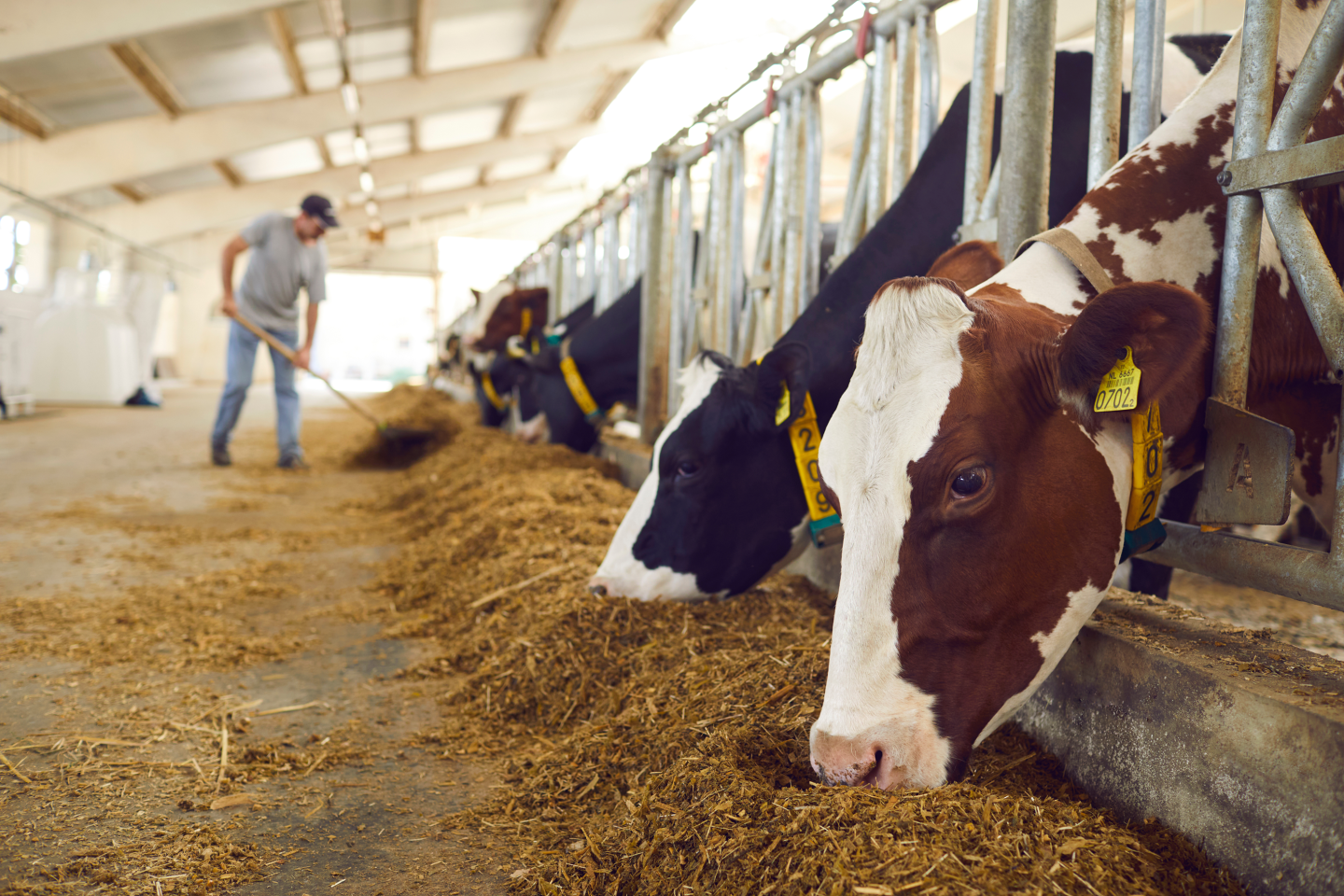
How a Cheshire dairy farm worked with the Environment Agency to reduce the risks of water pollution
At a dairy farm in Cheshire, an Environment Agency (EA) officer found evidence of non-compliances with environmental regulations and worked with the farmer to help resolve those issues.
When the officer first visited the farm, it only had enough storage for six weeks of slurry. There were also problems with the silage clamps, which had no perimeter drains and the walls were starting to fall down. There was evidence of effluent draining to the ground and a septic tank was also draining directly into a small watercourse next to the farm, causing a build-up of sewage fungus.
The officer explained the areas of non-compliance to the farmer and discussed the risks to the environment, including negative impacts on water quality and biodiversity. Silage effluent is a potent pollutant that can strip oxygen from the water.
The farmer was keen to make improvements and agreed a set of actions that would bring the farm back into compliance. Within a year they had made a number of improvements, which included:
- Building two new slurry stores, to take storage capacity up to seven months.
- Building new perimeter drains and walls for the silage clamps.
- Installing a new treatment plant for the septic tank.
Benefits of working together
Working with the EA Officer meant the farmer could be confident that these works were fully compliant with regulations and would reduce the chance of environmental harms. The new structures were built to a high standard and ensured the farm could continue to produce food without worries about future inspections.

Defra regularly updates the Farming blog. Please subscribe to the blog to ensure you receive all the latest news.
Farmers backed to tackle endemic diseases with funded vet visits expansion
Farmers in England can now get funded vet visits for multiple herds or flocks on the same farm – including cattle, pigs and sheep. Increased disease resilience means healthier animals and greater food security, boosting farmers' profits.
It allows farmers like Bryan and Liz Griffiths in Devon, who manage cattle and two sheep flocks with different needs, to receive funded health assessments for all of these animals for the first time.
Defra's vets visit support, part of its Animal Health and Welfare Pathway, has expanded since 2023, with over 8,000 visits so far benefiting hundreds of thousands of animals, and over 95% of farmers saying that they have or will take action based on the advice of their vet.
Cumbrian farmer Chris has shared that the visit helped boost his farm business with targeted antibiotic use to save money, lameness prevention advice, and essential BVD testing.
Farmers can apply for a vet of their choice to assess all their herds and flocks along with an optional funded follow-up.
It takes on average just 90 seconds to apply – find out how on the Defra Farming Blog post.
You can also watch recordings of the Defra webinars for pig and sheep farmers here.
Have your say: Call for Evidence on Business Investment in Nature
Government has launched a call for evidence seeking views on how to fairly and effectively increase incentives for businesses to invest in nature.
We encourage agri-food businesses, trade bodies, farmers, and environmental NGOs to share their perspectives on how policy can better support nature-positive investment- ensuring that commercial, agricultural, and environmental interests are aligned in delivering long-term benefits for people and nature.
Responses to the call for evidence will support the development of policies to increase private sector demand for, and investment in, nature protection and improvement.
To respond to this call for evidence, send written submissions to Nature.Investment.CfE@defra.gov.uk by 11:59pm on 7 August 2025.
Updated guidance on Farming Rules for Water
On 16 July, Government published updated guidance on how to comply with The Reduction and Prevention of Agricultural Diffuse Pollution (England) Regulations 2018 (also known as the ‘Farming Rules for Water’ (FRfW)).
The updates simplify and clarify the guidance to farmers and land mangers on what they must do to prevent agricultural diffuse pollution when they manage organic manures, manufactured fertiliser, soil and livestock.
Exception groups invited to apply for SFI24
On 11 March 2025, SFI was closed to new applications.
However, on 12 May 2025, it was announced that a cohort of applicants who had started an application within 2 months of 11 March 2025 but did not submit it by that date will be given 6 weeks to complete an application. This means if they started their application on or after 12 January 2025, they will be able to apply.
It was also announced that a cohort of farmers who were in exception groups would be able to apply. This includes SFI Pilot group farmers, farmers who faced system issues or glitches that prevented them from submitting their application by the deadline, and assisted digital group farmers.
All eligible farmers have now been contacted by the Rural Payments Agency (RPA) to begin the process to be able to apply.
Applications for these groups opened on 7 July for a six-week window, closing on the 18 August.
Further information can be found in the Daniel Zeichner written statement on SFI 2024 - House of Commons 12 May 2025
Rural Payments Agency Blog
To stay up to date with the latest information and updates from the Rural Payments Agency (RPA), sign up to the RPA Blog. You can also listen to the RPA Podcast, which has been launched to help farmers, landowners and rural communities keep up to date with the latest news from the RPA. You can also follow the RPA on social media:
- X @ruralpay
- Facebook: facebook.com/RuralPaymentsAgency
- YouTube: Rural Payments Agency
- Instagram: ruralpay.

Stay up to date with us
Subscribe to our free monthly newsletter
If you don’t already receive our monthly FAS newsletter, please visit farmingadviceservice.org.uk/signup and enter your email address into the newsletter sign-up box.
In line with data protection regulations, such as the General Data Protection Regulation (GDPR) and the UK Data Protection Act 2018, the FAS has updated its privacy policy to explain how your data is kept safe. To view the policy, please visit www.farmingadviceservice.org.uk/events/privacy/.

Free and confidential advice
The FAS is funded by the Department for Environment, Food and Rural Affairs (Defra). We provide free, confidential advice to help farmers and land managers in England understand and meet the legal requirements in English law around certain farming activities to protect people, livestock and the environment. We update the farming sector on relevant government farming policy that is applicable in England and on the actions that can be taken to help farmers comply with the relevant regulations. Our newsletter also provides articles on topics that are complementary to farming regulation, such as practices that benefit the wider environment and wellbeing support.
Our website hosts our previous newsletters, as well as technical articles and webinars that cover various topics in more detail.
Contacting the advice line: Farmers requiring telephone advice can contact the FAS technical advice line on 03000 200 301, Monday to Friday, between 08:30 and 17:00. The Rural Services Helpline provides a single number for all FAS, Rural Payments Agency (RPA), Animal and Plant Health Agency, Natural England and Forestry enquiries.
You can also email enquiries to advice@farmingadviceservice.org.uk. Our helpline team aims to respond to all telephone and email enquiries within one working day.